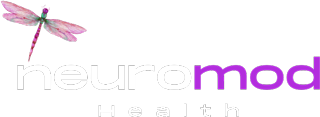Blog
Spravato and TMS: Comparing Breakthrough Treatments for Depression
- April 2, 2024
-
NeuroMod Health

Recent Posts
Understanding Spravato
Comparative Analysis of Spravato and TMS
1. Spravato: Pharmacological Intervention
2. TMS: Non-Invasive Neuromodulation
3. Targeted Efficacy
4. Treatment Considerations
Spravato requires administration under medical supervision due to potential side effects, including dissociation and blood pressure changes. In contrast, TMS sessions are generally well-tolerated, with minimal discomfort during the procedure. The choice between these treatments may hinge on factors such as the preference for in-home medication versus outpatient neuromodulation sessions.
The world of depression treatment has witnessed significant advancements with the introduction of Spravato and Transcranial Magnetic Stimulation (TMS). This comparative analysis highlights the distinct characteristics of each treatment, emphasizing the pharmacological intervention of Spravato and the non-invasive neuromodulation approach of TMS. The choice between these breakthrough therapies depends on individual factors, and ongoing research promises to further refine our understanding of their efficacy and applicability in diverse cases of depression.



